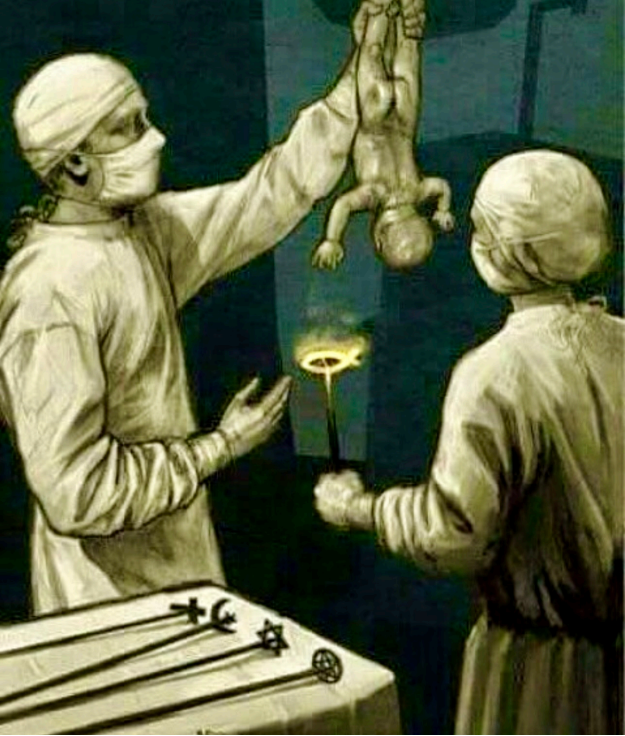Is
Religion
Child Mind
Abuse?
Is
Noun:
Religion
The belief in and worship of a superhuman power or powers, especially a God or gods.
Noun:
Child
A young human being below the age of puberty or below the legal age of majority.
Noun:
Mind
The element of a person that enables them to be aware of the world and their experiences, to think, and to feel; the faculty of consciousness and thought.
Verb:
Abuse
Use (something) to bad effect or for a bad purpose; misuse.
Wait! What?
Your first reaction might be to think religion is good for children.
If you search Google — is it good to raise children religiously? You’ll get studies in agreement with the view that it’s good for children and society to be raised religious.
But what are the negatives to being raised religious?
What is the philosophy, the psychology, the impact for the child’s life?
A Child is Born.
Raised Religious? Philosophy
Epistemology
How do you know? Knowledge?
Faith, Belief.
Ethics/Morality
How to deal with others? How to live?
For God, For Others.
Metaphysics
What kind of world is it? What should I do?
God's World, Good vs. Evil.
Raised Religious? Psychology
Core Views on Self
Sinner, Not OK! Need to be Saved.
Core Views on Others
Sacrifice, Don’t be Selfish! Live for God.
Core Views on the World
Good vs. Evil, Us vs. Them, Heaven vs Hell.
Even a child could choose.
Consider the child’s mind - from 18 months when they are mimicking those around them, to 18 years with caregivers/ parents/siblings in a community most likely supporting the same views.
(80% + ?) of all children are Raised Religious?

Noun
Religion | rəˈlij(ə)n |
The belief in and worship of a superhuman power or powers, especially a God or gods: ideas about the relationship between science and religion | I have benefited from our conversations on politics, religion, sport, and many other areas | religion played a large role in her politics.
- a particular system of faith and worship: the world's great religions.
- a pursuit or interest to which someone ascribes supreme importance: consumerism is the new religion.
Adjective
Religious | rəˈlijəs |
Relating to or believing in a religion: both men were deeply religious, intelligent, and moralistic | religious music.
- (of a belief or practice) forming part of someone's thought about or worship of a divine being: he has strong religious convictions.
- Belonging or relating to a monastic order or other group of people who are united by their practice of religion: religious houses were built on ancient pagan sites.
- Treated or regarded with a devotion and scrupulousness appropriate to worship: I have a religious aversion to reading manuals.
Noun (plural children | ˈCHildr(ə)n | )
Child | CHīld |
A young human being below the age of puberty or below the legal age of majority: she'd been playing tennis since she was a child | the film is not suitable for children.
- a son or daughter of any age: when children leave home, parents can feel somewhat redundant.
- an immature or irresponsible person: she's such a child!
- a person who has little or no experience in a particular area: he's a child in financial matters.
Noun
Mind | mīnd |
1) The element of a person that enables them to be aware of the world and their experiences, to think, and to feel; the faculty of consciousness and thought: as the thoughts ran through his mind, he came to a conclusion | people have the price they are prepared to pay settled in their minds.
- a person's mental processes contrasted with physical action: I wrote a letter in my mind.
2) A person's intellect: his keen mind.
- a person's memory: the company's name slips my mind
- a person identified with their intellectual faculties: he was one of the greatest minds of his time.
3) A person's attention: I expect my employees to keep their minds on the job.
- the will or determination to achieve something: anyone can lose weight if they set their mind to it.
Verb
Abuse | əˈbyoo͞z | [with object]
1) Use (something) to bad effect or for a bad purpose; misuse: the judge abused his power by imposing the fines.
- make excessive and habitual use of (alcohol or drugs, especially illegal ones): at various times in her life she abused both alcohol and drugs.
2) Treat (a person or an animal) with cruelty or violence, especially regularly or repeatedly: riders who abuse their horses should be prosecuted.
- assault (someone, especially a woman or child) sexually: he was a depraved man who had abused his two young daughters.
Noun
Abuse | əˈbyoo͞z |
1) The improper use of something: alcohol abuse | an abuse of public funds.
- unjust or corrupt practice: protection against fraud and abuse | human rights abuses.
2) Cruel and violent treatment of a person or animal: a black eye and other signs of physical abuse.
- violent treatment involving sexual assault, especially on a repeated basis: young people who have suffered sexual abuse.